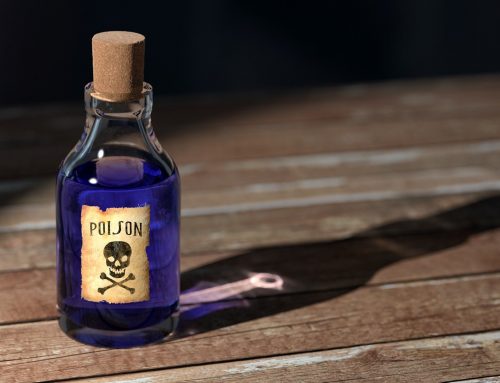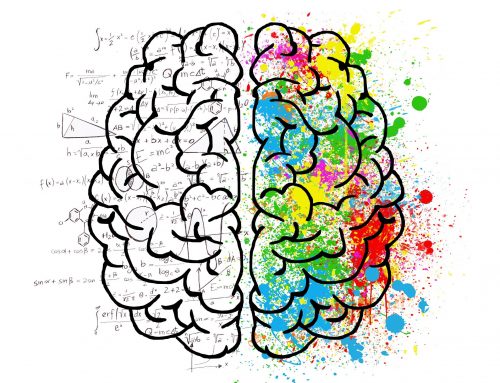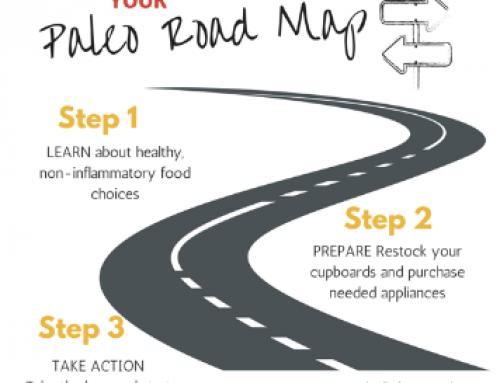Why You Should Detox to Improve Your Gut Health
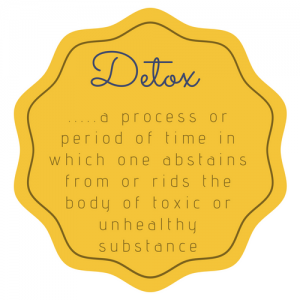
The point of detox is to rid the body of toxins. According to the Textbook of Natural Medicine, toxins are ‘any compound that can have a detrimental effect on cell function or structure’. We can be exposed to toxins from inside the body (endogenously) such as those created by pathogens, or exogenously (from outside the body) by chemicals and heavy metals.
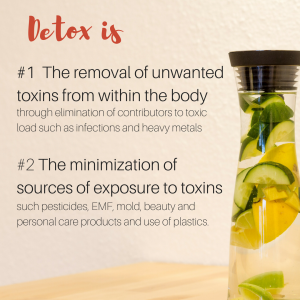 Detox has become a buzz word in the health industry. It often consists of a restrictive clean diet (i.e. juice cleanse) for a short period of time, after which the individual returns to their typical pattern of eating and lifestyle habits.
Detox has become a buzz word in the health industry. It often consists of a restrictive clean diet (i.e. juice cleanse) for a short period of time, after which the individual returns to their typical pattern of eating and lifestyle habits.
Combined exposure to chemicals can cause ‘synergistic toxicity’ – meaning that exposure to more than one toxin has an exponentially greater negative impact on the body. In today’s industrialized nation, it is essential to ensure that the amount of toxins entering into our body is less than the amount of toxins our body can excrete. The question is not if you have toxic exposure, it is what you have exposure to, how much exposure you have, and how your body is responding to this toxic exposure.
Fast Facts About Toxins
- The USA produces/imports over 74 billion poundsof chemicals per day; equivalent to 250 lbs of chemicals perperson per day.
- Industrial chemicals do not have to be tested before they are put on the market.Out of close to 85,000 chemicals, only a few hundred have been properly reviewed by the Environmental Protection Agency. InCanada, over 4,000 toxic chemicals have been identified that were released into the market without being studied.
- Researchdetected over 287 chemicals in blood in newborn’s umbilical cord.
- From 1974-2016, 1.6 billion kilograms of the herbicide glyphosatehas been sprayed on crops in the USA, 8.6 billion kilograms world-wide. In Canada, more than 25,000 kilograms ofglyphosate are sold each year.
- According to the U.S.Environmental Protection Agency, everyone has 700 chemicals on average in our bodies, while babies have 70 chemicals on average.
- Testingof winter clothing, baby bibs and blankets sold in North America in 2017, revealed that 86 percent had toxic chemicals known as PFAS.
- According to the United States Environmental Protection Agency (EPA), toxic chemicals are the worst environmental problem in the USA, responsible for up to 80% of cancer deaths.
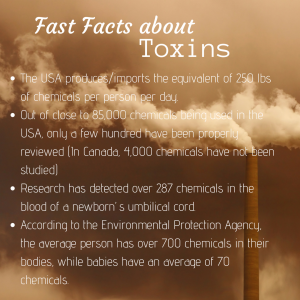
It can be difficult to navigation scientific research on the impact of chemicals on human development and health. Some studies will conclude that chemicals have no health disrupting impact, while others will clearly define significant health impacts. It’s important to note that the majority of these studies explore the impact of one chemical and isolation, sometimes using animals. Unfortunately, that is not an accurate reflection of the ‘real world’, where we are exposed to hundreds, if not thousands of chemicals on a daily basis. Because the impact of chemicals on the human body is known to be synergistic it is likely that studies underestimate the health consequences of chemical exposure. The guidelines presented in this handbook are based primarily off of the recommendations of the Environmental Working Group(EWG). The EWG has conducted extensive research, and review of the literature to assist the consumer to navigate this complex web of information, and to better inform consumers of dangerous chemical and concerning health products. For more a more detailed analysis, please visit EWG.
So how does this link with gut health?
One of the main causes of gut dysfunction is leaky gut. This is when the lining of the intestine malfunctions. The links between the cells (tight junctions) fall apart which creates gaps in the cells and allows particles to enter into general circulation in your body that shouldn’t be getting through. This could be bacteria, parasites, undigested particles of food and environmental toxins. Essentially, leaky gut will wreak havoc on your GI tract. The outcome of leaky gut can included a whole host of symptoms like:
- gas & bloating
- diarrhea and constipation
- brain fog
- excessive fatigue
- cravings for carbs
- skin issues
- mental health issues
- autoimmunity.
Essentially, all health issues lead back to the gut. And we know, for example that environmental toxins like NSAIDS (non-steroidal anti-inflammatory drugs like ibuprophen) are harmful to the gut and break down the lining of the gut wall. Glyphosate, the chemical sprayed on non-organic crops is also known to cause digestive issues by impacting the function of the microvilli.
So how can you detox your gut? Here are some basic steps to get you started:
Step One: Eat organic
Step Two: Switch out personal care products
Step Three: Ditch toxic cooking supplies
Step Four: Get air & water filters
Step Five: Swap out cleaning supplies
**Can be completed in any order!
Want to learn more about deeper levels of toxicity? I offer heavy metal and hair and mineral analyses! Contact me with the link below for more details!




